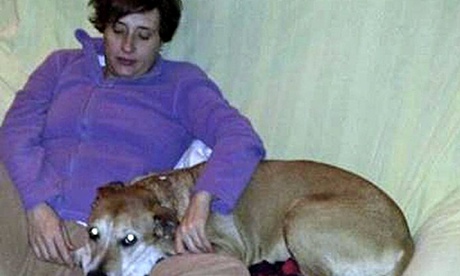
Spanish health professionals have taken aim at the scant amount of training offered to those on the frontline fighting the Ebola virus as the investigation continues into how a Spanish nurse became the first known person to contract the disease outside of west Africa.
On Wednesday, the doctor treating Ebola patient Teresa Romero Ramos said the infection might have been caused by “an accident” when the 44-year-old was taking off her protective equipment.
Germán Ramírez said he had spoken to the nurse three times in an effort to home in how she got infected. Romero Ramos, he said, believes she might have touched her face with her gloves while she was taking off her protective equipment.
In an interview from her hospital bed, Romero Ramos told Spanish broadcaster Cuatro that while she had been given training on how to put on and take off the protective equipment, it was “little training”. She refused to give more details.
Her interview came as the number of patients in quarantine at Madrid’s Carlos III hospital rose to six. Along with Romero Ramos and her husband, patients include three nurses who attended to the missionaries and a man who had travelled to Spain from Nigeria.
Initial tests indicate that one of the nurses and the traveller are both free from Ebola.
Despite the growing number of patients, health workers said they had had little preparation to deal with Ebola. For Amelia Batanero, a nurse at Madrid’s La Paz hospital, the call to attend to the growing number of Ebola patients could come any day now as she is on the rotation list to work at the Carlos III hospital.
This, in spite of the fact that she has never stepped foot in the hospital or that her only training took place months ago. “We haven’t learned how to use these suits, we don’t know the protocol on how to treat Ebola,” she said.
In July she was part of a group of nurses in Madrid who brought a complaint before a judge over their “lack of training and knowledge regarding Ebola protocols”.
Dr Santiago Yus, a specialist in intensive care, echoed Batanero’s concerns, telling El Mundo that he would likely be treating Ebola patients in the coming days. “I’m not ready, I’m not trained,” he said.
The doctor, who has more than 30 years experience, said he had only been given a few 10-minute briefings months before and further questions had been directed to photographs on the wall explaining how to put on and take off the protective suit. This week, he was part of a group of 15 health workers who met with hospital management to warn them about their lack of preparation in facing Ebola.
As the training was given during the summer, many health professionals were away on vacation, said Alda Recas of AME, an association of nurses in Madrid. “When some people came back from their vacations, they were told they would have to take care of the missionaries. They would call you an hour, or half an hour, before their shift to show you how to put on the protective gear.”
The situation is far worse at the Alcorcón hospital, where health workers never expected to be on the frontline of an Ebola outbreak, said one worker who declined to be named. “We don’t even have the required safety level at this hospital to take on Ebola.”
On Monday, a screen and security tape made up the makeshift isolation unit for Romero Ramos while she was being tested. Doctors refused to confirm to her that she had twice tested positive for Ebola. As the nurse explained in her interview with Cuatro, “I asked the doctor for the result and he didn’t want to give it to me. Nobody told me anything.” She eventually learned that she was infected with Ebola after checking news headlines on a mobile phone.
Days after Romero Ramos was transferred to the Carlos III hospital, the zone where she was treated in the Alcorcón hospital remains untouched. Cleaning staff have refused to clean the area, arguing that they don’t have the right equipment or training to deal with the cleanup.
As the contracting company hastily attempts to meet their demands, a plastic curtain has been placed over the area. “We might be able to go into there on Thursday,” said one worker.
The blame for the varied response, said Roberto Tornamira of the workers’ union Fes-UGT-Madrid, lay with the Spanish health ministry as each hospital had been left to create a protocol on treating Ebola on its own. Calling it an “incredible” lapse of responsibility by health authorities, he noted that the lack of uniformity could have far-reaching consequences. “If this were to become an outbreak in Spain, it means each hospital would treat the virus in a different way.”
Meanwhile, dozens of animal rights activists scuffled with police outside the apartment complex where Romero Ramos and her husband live, trying to stop workers from taking away their dog, Excalibur. Protesters briefly halted a police van as it pulled away with the family pet inside, but police with batons cleared a path.
Madrid’s regional government later said the animal had been sedated, euthanised and incinerated. Authorities had obtained a court order to kill the dog, saying they could not rule out the possibility Excalibur could spread the virus.
